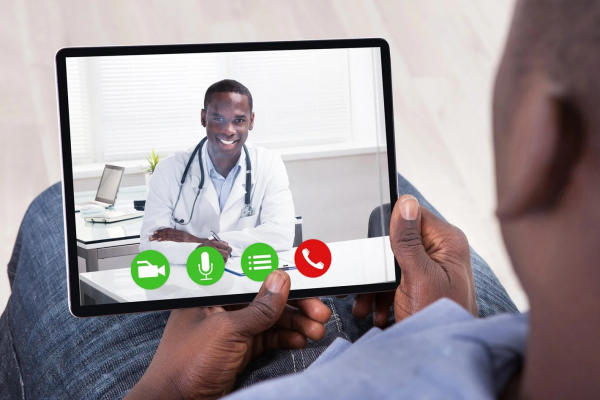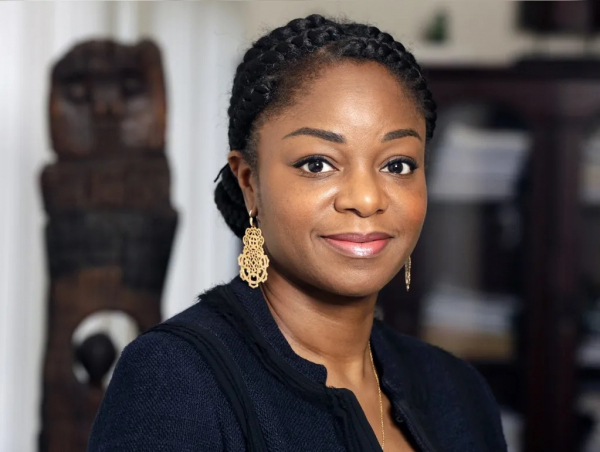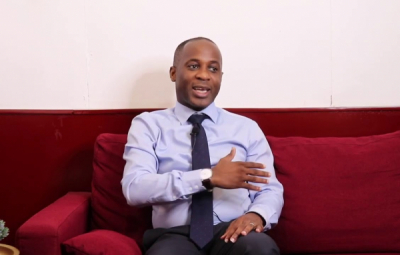In 2018, Kenya launched a 5-year plan to improve its health offer by building new infrastructures and increasing the number of health professionals. To address the challenges still lingering, notably concerning healthcare access in remote areas, the country wants to leverage technology.
Kenya will soon roll out a nationwide telemedicine program to improve healthcare access, in remote areas particularly. In that regard, through its Communication Authority, the country set aside Ksh600 million (US$5. million) to fund the installation of telemedicine infrastructure in 20 public health institutions.
According to Joseph Sitienei, head of the Ministry of Health’s Health Service Management department, telemedicine “is the direction to go so that no part of the country feels left out in the provision of quality health services and especially to reduce the cost of seeking health care to the patients.”
In the mid-term review of Kenya Health Sector Strategic Plan 2018-2023, the Ministry of Health reported that the healthcare worker density for effective service delivery significantly improved compared to its level in 2018. In late 2020, it was over 20.6 healthcare workers (HCWs) per 10,000 population. Nevertheless, it was below the 23 HCWs per 10,000 population suggested by the WHO and Kenya’s target of 24.4 HCWs per 10,000 population.
In 2019, the country claimed it was meeting the World Health Organization (WHO)’s recommended number of healthcare institutions per 10,000 population. That year, the disclosed national density of healthcare institutions per 10,000 population was 2.2 while the WHO was recommending at least a density of two healthcare institutions per 10,000 population.
Although the national density is higher than recommendations, in fourteen counties (30% of the national territory), the density was below WHO recommendations. Specialists and reference hospitals are concentrated in major towns while rural populations mainly have access to clinics. With telemedicine, Kenya will allow its rural populations to gain easy access to specialists and reference hospitals. Currently, the program is in its pilot phase in Kenyatta and Isiolo public hospitals.
“If we cannot provide enough skilled staff in all our health facilities, we can surely take the skilled staff to the rural areas through telemedicine! It is time that we have teleconsultations and telereferrals. There is no other opportune time than now,” Dr. Joseph Sitienei explains.
Muriel Edjo
In the past eleven years or so, the Minister of the Digital Economy has demonstrated her commitment to digital inclusion in Togo. She piloted several public projects that positioned her country on the list of global digital nations.
Cina Lawson (photo) is a Togolese politician and currently the Minister of Postal Affairs and Digital Economy. She is one of the three Francophone Sub-Saharan tech actors to be on Rest of World’s 2022 list of the 100 Global tech Changemakers. The recognition celebrates her numerous contributions to the development of the digital sector in her country, Togo.
Indeed, she joined the Togolese government in 2010 as the Minister of Posts and Telecommunications. On September 7, 2013, she was appointed Minister of the Digital Economy. Since then, she has been piloting the country’s e-government project. She also oversaw the introduction of information technology in the education sector, carried out digital inclusion projects profiting the most vulnerable, and enhanced competition in the telecom market by awarding licenses to two new internet service providers (Teolis SA and Vivendi Africa) in June 2017. In June 2018, Miss Lawson also extended the licenses of telecom operators Moov Togo and Togo Cellulaire, adding 4G to their service spectrum. Months later, she oversaw the privatization of incumbent operator Togocom and updated Togo’s ICT regulatory framework.
The Digital Minister holds a Diploma of Advanced Studies (DEA) from the Paris Institute of Political Studies (1997). She also holds a Master's in History from Paris-Nanterre University (1998), and a Master's in Public Policy from the Harvard Kennedy School (2001). She began her professional career at the World Bank in 1998. In the Information and Communication Technology Department in Washington DC, she advised governments on telecom policies, regulatory reforms, and privatizations. She also worked as a consultant for Alcatel-Lucent in Paris and, from 2005 to 2010, she was working for France Telecom SA.
She has received several recognitions for her impact on her country’s ICT sector. In 2016, she was named by Tropics Magazine as one of the 55 actors moving Africa forward. In January 2019, Cina Lawson won the Napoleon Innovation Award, awarded by a professional network dedicated to the promotion of “virtuous, ethical innovation that benefits the many.” The following month, she won the Harvard Kennedy School’s Alumni Public Service Award for her commitment and contribution to the development of the ICT sector. She was thus the first African female politician to win the award since its creation in 1997.
In October 2021, Cina Lawson received the "Woman of the Year Award" from UC Berkeley’s Fisher Center for Business Analytics for Novissi, the social assistance project implemented through a digital platform to support low-income populations during the Covid-19 crisis. She was praised for her innovative work in leveraging non-traditional data and analytics to target and distribute emergency financial assistance to the most vulnerable.
Melchior Koba
According to the World Bank, African countries must urgently train their youth on future needs, digital skills notably, to facilitate professional integration for millions of people. Most countries have taken the advice and are taking measures to develop local digital talents.
Morocco’s Oujda region will launch its center for collective intelligence by late 2022. Baptized Zone01 Oujda, the center will develop local digital talents. The partnership agreement for the creation of that center was signed by the region’s authorities and digital training institution 01Talent Africa on the sidelines of the 9th edition of Africities (May 17-21, 2022) in Kisumu, Kenya.
Zone01 Oudja will be hosted at Mohamed First University’s knowledge campus. The 500-student infrastructure will have three specific institutions. Namely, there will be a coding school and a programming school specifically dedicated to professionals- those serving regional and local administrations. The third institution will be a talent management agency whose main mission will be to provide IT services to local, regional and international partners by using the talents trained at the coding school.
The selection, open to under-18 Moroccans, will be a two-phase process (it is expected to start in the second half of 2022). During the first phase, pre-selected candidates will take a 4-week training. At the end of that training, a group problem-solving test will take place to select those who will take a 2-year digital training with a guaranteed job after the training.
The project is one of the Oujda region’s strategies to digitize its economy and boost its attractiveness. The region wants to train its youth in digital skills to help them find jobs and become important players in the local and national ecosystem with the digital transformation that is being accelerated everywhere. In that regard, the region has entered into strategic partnerships with the Ministry of Higher Education, the agency for economic development ADPS, the United Cities and Local Governments of Africa (UCLGA), and the Oujda regional investment center CRI.
Also, in January 2021, the CRI signed a memorandum of understanding with the Federation of Information Technology, Telecommunications and Offshoring (APEBI) for the accelerated development of offshoring and digital ecosystems in Oujda.
Ruben Tchounyabe
The coronavirus pandemic forced an acceleration of digital transformation projects in Africa. Almost every sector is now caught in the digitalization fever with startups coming into the picture to solve the population’s pain points. SingPay is one of the solutions developed to solve problems, financial notably.
SingPay is a digital platform developed by business consulting firm SING SA, founded in 2018 and managed by Yannick Ebibie (photo) ever since. The platform allows firms to easily collect payments.
“SingPay aims to facilitate the integration of payment means to digital solutions in our growing ecosystem by reducing barriers to entry, notably for early-stage ventures and public projects,” SING SA explains on its website.
The digital solution allows startups and firms offering services or selling products online to collect payments from users, even those without conventional payment systems like bank cards. By integrating SingPay into their digital platforms, users can collect payments via mobile money, bank cards, etc…
SingPay collects no fee from its clients when the volume of overall transactions processed is still below XAF25 million (about US$40,000). Beyond that threshold, it collects 2.5% per transaction for private ventures and 1.5% per transaction for public ventures. Every year, SING SA. reviews the status of every one of its clients via its programming interface.
Thanks to SingPay, SING SA has been selected among the 300 start-ups that will contest to become the Top45 awardees of the first edition of the AfricaTech Awards.
Adoni Conrad Quenum
With some 15 years of professional experience in the marketing and finance sector, she wants to address the financing problems faced by innovative entrepreneurs in Africa.
Fatoumata Bâ is a Senegalese tech entrepreneur and venture capital investor. In 2018, she founded Janngo, an investment firm based in Abidjan, Côte d’Ivoire. Her firm supports and invests in pan-African startups that use technology to boost access to crucial services, products, content, markets, finance, jobs, and talents in Africa.
Speaking on the reasons that prompted her to create Janngo, Fatoumata Bâ explained that she aimed to create Pan-African digital champions with sustainable and economically viable business models and help address important social problems.
Shortly after its creation, in 2018, Janngo unveiled a digital platform (Jexport) that allows local farmers to sell their products to foreign buyers at affordable prices. In December 2021, the investment firm raised XOF7 billion (US$11.4 million) to fund the African private sector. The funds were raised from the African Development Bank (AfDB), the European Union, and the Organisation of African, Caribbean, and Pacific States.
Janngo’s founder and executive chair holds a Master’s in Management, Strategy, Marketing, and Finance from Toulouse Business School (2009). Her professional career started in 2007 with Index Multimedia where she was an account manager and business developer. Less than twelve months later, she joined France Telecom as a sales advisor and, in September 2008, she obtained a promotion to a business analyst.
In March 2010, she was recruited as a senior consultant for the information technology company Atos Consulting. Three years later, she launched the Ivorian subsidiary of Jumia. Fatoumata Bâ became the Managing director of Jumia Nigeria in 2015 before her appointment as the marketing manager of Jumia group in 2016. She is now a board member for SouthBridge Investment Bank and an investment committee member for evergreen investment firm Creadev.
In 2016, she was on Forbes’ 30 Under 30 list, which lists the 30 most promising under-30 African entrepreneurs. She is also the winner of the 2019 Aenne Burda Award for Creative Leadership and one of the leaders on Choiseul's 2020 list of the 100 African Economic Leaders for Tomorrow. She is also one of the 20 Africans to be on the Rest of World’s 2022 Top 100 Global Tech Changemakers. This recognition celebrates her extensive professional background and contributions.
Melchior Koba
In 2020, amid the coronavirus pandemic, public services were seriously disrupted in several African countries. To protect both citizens and their governments against such occurrences, most countries are now accelerating their digital transformation projects.
Congo-Brazzaville and the European Union signed Thursday (May 19), a €15 million grant agreement to boost the digitization of public administration. The agreement was signed by Congo’s Finance Minister Rigobert Roger Andely (photo, right) and Giacomo Durazzo (photo, left), the EU ambassador to the country.
The grant will help Congo improve its digital infrastructure, and up its assistance and governance of the sector. This will boost the quality of the public services provided to the population, enhance their efficiency by reducing delays and corruption and improve public governance.
Digital transformation is the first “priority area” of the Multi-Annual Indicative Program (MIP) signed by the European Union and Congo-Brazzaville in December 2021. It is one of the first projects effectively financed by the EU under the Neighbourhood, Development and International Cooperation Instrument – Global Europe (NDICI – Global Europe), an instrument replacing the European Development Fund (EDF).
For Congo-Brazzaville, digital transformation is a key component of the national strategy for the development of the digital economy, “Congo Digital 2025.” The country is intent on successfully implementing the national strategy (unveiled in August 2019) given the development issues it addresses.
Muriel Edjo
According to the World Bank, up to 65% of the adult population is unbanked in sub-Saharan Africa. In Nigeria alone, some reports estimate the number of unbanked adults to be 59 million. For those reports, the situation is due to several challenges namely the conservative policies and distance to access points. Babs Ogundeyi wants to address some of the problems with Kuda Bank, a digital-only bank.
Babs Ogundeyi (photo) is a young Nigerian entrepreneur and co-founder of Kuda Bank, a digital-only bank. Founded in 2017, the fintech startup was initially named Kudimoney with Musty Mustafa as its co-founder. It became Kuda Bank in 2019, following the obtention of a central bank license, in line with its ambition to make banking services more accessible to a larger number of the population in Africa.
Nowadays, via its mobile app, Kuda Bank allows Nigerians to manage their expenses and make savings online without paying maintenance or hidden fees. For its CEO, Babs Ogundeyi, the startup can even offer instant loans to its users provided their salaries are domiciled with Kuda.
Its co-founder Ogundeyi graduated from Brunel University London with a BA in Business Studies and Accounting. Right after his graduation, he went into the entrepreneurship world (in 2002) by co-founding MotorTrader Nigeria, a classified car ad magazine. One year later, he sold the magazine to a major Nigerian media. Around the same period, he joined PwC Nigeria as an Engagement Manager. In 2010, he left PwC Nigeria to become a partner at investment company Redbrick Ltd.
Some months later, he became the Oyo State government’s special advisor on finance. In the five years he spent in that position, he piloted the state’s largest-ever bond issue (NGN55 billion), advised on several fiscal policies, and set public and private partnerships.
Two years later, he resumed his entrepreneurship career with Kudimoney, which later became Kuda Bank. In 2021, the tech entrepreneur secured US$55 million series B financing to boost his startup’s presence in Nigeria. The Series B round raised the volume of investments attracted by Kuda Bank since 2019 to US$91.6 million and its value to US$500 million. At the time, Babs Ogundeyi said that Nigeria was an important market to be conquered before thinking about any international expansion.
Melchior Koba
Technology now appears as an essential tool that can be leveraged for improved governance and growth. In line with its commitment to socio-economic development in Africa, Orange wants to support the development of innovative tech solutions.
French telecom group Orange announced Friday (May, 20), the launch of its 12th Orange Summer Challenge, a 3-month competition helping students create innovative tech solutions. Backed by Google and EY Tunisie, the competition is open for students in the eight MENA countries where Orange already has its digital centers. Those countries are namely Tunisia, Morocco, Côte d’Ivoire, Senegal, Cameroon, Mali, Sierra Leone, Madagascar, and Jordan.
In the framework of the summer challenge, students who have projects aimed at leveraging technology for the greater good will receive training and mentorship from local and international coaches. The experts teaching and mentoring them will notably come from Orange Coding Academy (for the software component of the competition) and the FabLab Solidaire (for the hardware component).
They will also receive technical support, notably in project design (business modeling, business plan writing, etc…), from EY Tunisie.
The three partners will also provide design thinking and soft skill courses to help mentees present their projects during the final stage of the competition in each of the participating countries. Applications for the summer challenge are open till June 15, 2022. Interested students can submit their applications here.
Ruben Tchounyabe
Currently, Anis Sahbani is an associate professor at the Sorbonne University Pierre and Marie Curie Campus. With his expertise in robotics, he is making his company, Evona Robotics, a pioneer in Africa’s robotics industry.
Anis Sahbani (photo) is a Tunisian entrepreneur, Associate-professor, and robotics specialist. In 2014, he founded Enova Robotics, a company that specializes in robot design and manufacturing.
One of the well-known robots designed by Anis Sahbani is probably PGuard, a fully automated security robot. Initially created for use on industrial sites, airports, and border zones, it is now used by the Tunisian Ministry of Interior to maintain public order. During the coronavirus health crisis, the government used it to enforce lockdown rules. In 2020, speaking on the use of robotics and artificial intelligence to curb the spread of the coronavirus pandemic, the robotics specialists explained that robots could be intermediaries protecting humans against possible contaminations.
In a bid to show PGuard’s utility outside the security segment, Sahbani is gradually introducing those robots in the social sector. He also developed Vaesense, a contactless patient monitoring robot. His startup also created MiniLab, an education robot to be used by universities and research labs in teaching robotics.
Enova Robotics is the result of several years of field experience. In 1998, after his electrical engineering degree at the National Engineering School of Tunis (ENIT), in Tunis, Anis Sahbani enrolled at the Paul Sabatier Toulouse III University, France, where he got his Ph.D. in robotics in 2003. In 2014, he became an associate professor at the Sorbonne University Pierre and Marie Curie Campus. The same year, he founded Enova Robotics, which won the pitch fest InvesTech 2021 organized by the US embassy in Jordan in partnership with SelectUSA. This award opened doors to the startup for the SelectUSA virtual summit held in June 2021.
Melchior Koba
After an extensive experience with several health institutions in England and the United States, Abasi Ene-Obong returned to Nigeria to advance the fight against cancer in Africa. His achievements are gaining increasing recognition and earning him numerous accolades.
Abasi Ene-Obong (photo) is a Nigerian doctor and founder of biotech firm 54Gene, which wants to ‘bridge the disparity gap in genomics data.’ Using translational research and advanced molecular diagnostics, the biotech launched in 2019 also helps fight cancer in Africa and around the world.
“Though the arc of conducting early research through drug approval can belong in biotech, we have taken the approach to building the backbone that is needed for short-term successes to long-term gains that provide better healthcare delivery and treatment outcomes from diseases,” Eno-Obong told Techcrunch.
A Ph.D. holder (in cancer biology from the University of London), the founder has a master's in Human Molecular Genetics (in 2009) from the Imperial College, London. Before founding 54Gene, Abasi Ene-Obong worked as a cancer researcher and published a paper on pancreatic cancer immunology in the Gastroenterology Journal. From 2014 to 2015, he was a research director and consultant for IMS Health (now known as IQVIA), a U.S.-based company offering information, services, and technology in the healthcare industry.
Months later, he became a PricewaterhouseCoopers (PwC) senior associate and healthcare industry advisor in the U.S. In 2017, he spent months as a Lead Consultant for Nigeria's Strategic Health Development Plan. In 2019, Quartz Africa named him one of the most innovative entrepreneurs on the African continent of the year. In September 2020, months after the launch of 54Gene, Abasi Ene-Obong was named in Fortune’s 40 under 40 most influential people in healthcare. The same year, his startup, 54Gene, received the Best Healthcare Technology Solution award from AppsAfrica.
In September 2021, 54Gene raised US$25 million during a series B round led by Cathay AfricInvest Innovation Fund. The operation, which was the third organized by the startup since its creation, brought the overall volume of funding secured to over US$45 million. It was aimed at expanding “54gene's capabilities in sequencing, target identification and validation, and precision medicine clinical trials enabling drug discovery in Africa for both Africans and the global population,” and enabling the startup to “begin its expansion across the African continent.”
"It's truly incredible to witness the impact of African scientists in global research and it is critical to global health that this continues. We want to scale our contribution to global drug discovery by extensively developing life science capabilities on the continent and this additional capital will catalyze our endeavors," Ene-Obong said
Three months later, he created the African Center for Translational Genomics (ACTG), a genetic database managed by the Non-Communicable Diseases-Genetic Heritage Study consortium.
Melchior Koba
More...
This year, at least two international meetings have gathered public and private actors involved in personal data protection in Africa. The issue is ever-pressing, given the weakness of several African countries in a digital era marked by increased use of the internet and information systems.
Chad, Niger, and Morocco signed, Thursday (May 12), a data protection knowledge sharing agreement. Morocco was represented by the National Control Commission for the Protection of Personal Data (CNDP) while Chad was represented by the ANSICE and Niger by the HAPD.
Under the agreement signed on the sidelines of the Network of African Data Protection Authorities (NADPA/RAPDP)’s general assembly, CNDP will share its experience with the other two parties.
For ANSICE director-general Abdel-Nassir Mahamat Nassour, the agreement was signed because of the urgent need to find means and solutions to protect citizens’ data and meet their various demands. The same view was shared by Sanady Tchimaden Hadatan (photo), president of Niger’s HAPDP.
With the acceleration of digital transformation in Africa, residents are called to be connected to the internet and information systems more often. They, therefore, generate an increasing amount of personal data, which is prized by governments and companies. It is now urgent to protect that data since they are a valuable commodity in the digital era. If not, the data can be subjected to abusive exploitation by national and international parties.
Muriel Edjo
Over the past seven years, Victor Mapunga has been involved in several digital projects. Since 2018, he has been promoting the use of digital identities through FlexID Technologies.
Victor Mapunga (photo) is a Zimbabwean serial entrepreneur, software developer, and CEO of FlexID Technologies, a blockchain startup promoting the use of digital technologies. Through FlexID, the young tech entrepreneur has already served several clients in Africa and Asia. For instance, last year, he provided digital identities to 50,000 patients in Zimbabwe in the framework of a program initiated by healthtech Ubuntu Clinics to improve care and follow-up for its users.
For Mapunga, “harnessing the power of technology in the healthcare sector is paramount in driving cost down and most importantly improving patient outcomes.”
The serial entrepreneur has an extensive and diversified entrepreneurship career. In 2014, he founded GreyMarge Investments to invest in technology, finance, healthcare, logistics, and infrastructure. Months later, he launched an edtech, iLearnfb. In May 2017, he co-founded JustBuy ZW, a mobile app allowing users to post classified ads.
With multiple certifications in technology entrepreneurship earned in the U.S. and the U.K., the Zimbabwean entrepreneur is determined to use digital technologies to foster economic and social development in Africa.
That drive earned him a spot in the World Economic Forum's 2021 cohort of technology pioneers and opened for him doors to international meetings such as the Blockchain Africa Conference where he was invited to speak last year. He will participate again in 2023.
Melchior Koba
Most of the reports focused on Africa’s development stress the fact that entrepreneurship can address unemployment and wealth-creation problems. However, there are funding problems. To address those problems, investors, venture capitalists, business angels, and alike are stepping in with ever-innovative financing offers.
London-based venture capitalist Mustard recently launched a £4 million (US$5 million) investment vehicle to support African startups with “globalizable” ideas. Through its investment vehicle, Mustard plans to be both an investor and builder that will develop African idea-stage ventures that are likely to appeal to a global audience.
According to Mustard, African startups have the potential to influence the global scene, therefore imprinting a positive image of the continent. Therefore, it will invest both capital and technical expertise (engineering, design, and storytelling) even before the beneficiary projects and ventures are incorporated.
For the former Tony Elumelu Foundation CEO and Venture Capital advisor for the current project, “Mustard’s approach will [...] bring stories from Africa and other cultures to the world [...] through the meaningful brand narratives it builds for tech ventures.”
“Africa has many stories to tell, and over the last twenty years the story of its resilient youth seen through the growth of tech startups has been one of its most significant,” she added.
Meanwhile, Seni Sulyman, founder of Black Ops (a community of African Venture builders and operators), believes that “right from the first time [...] Mustard’s thesis and idea-stage investment approach [..] was really powerful.”
“I am keen to see what comes next from the Mustard team because I want to see African brands go global, which will not only mean massive changes for the continent but also for its place in the world,” he commented.
Ruben Tchounyabe
With #Kwaba, users can save or receive instant loans for real estate projects. They can also conveniently pay their rent or when they are unable to pay security deposits, they can receive up to 40% of their rent savings and pay in monthly installments.















